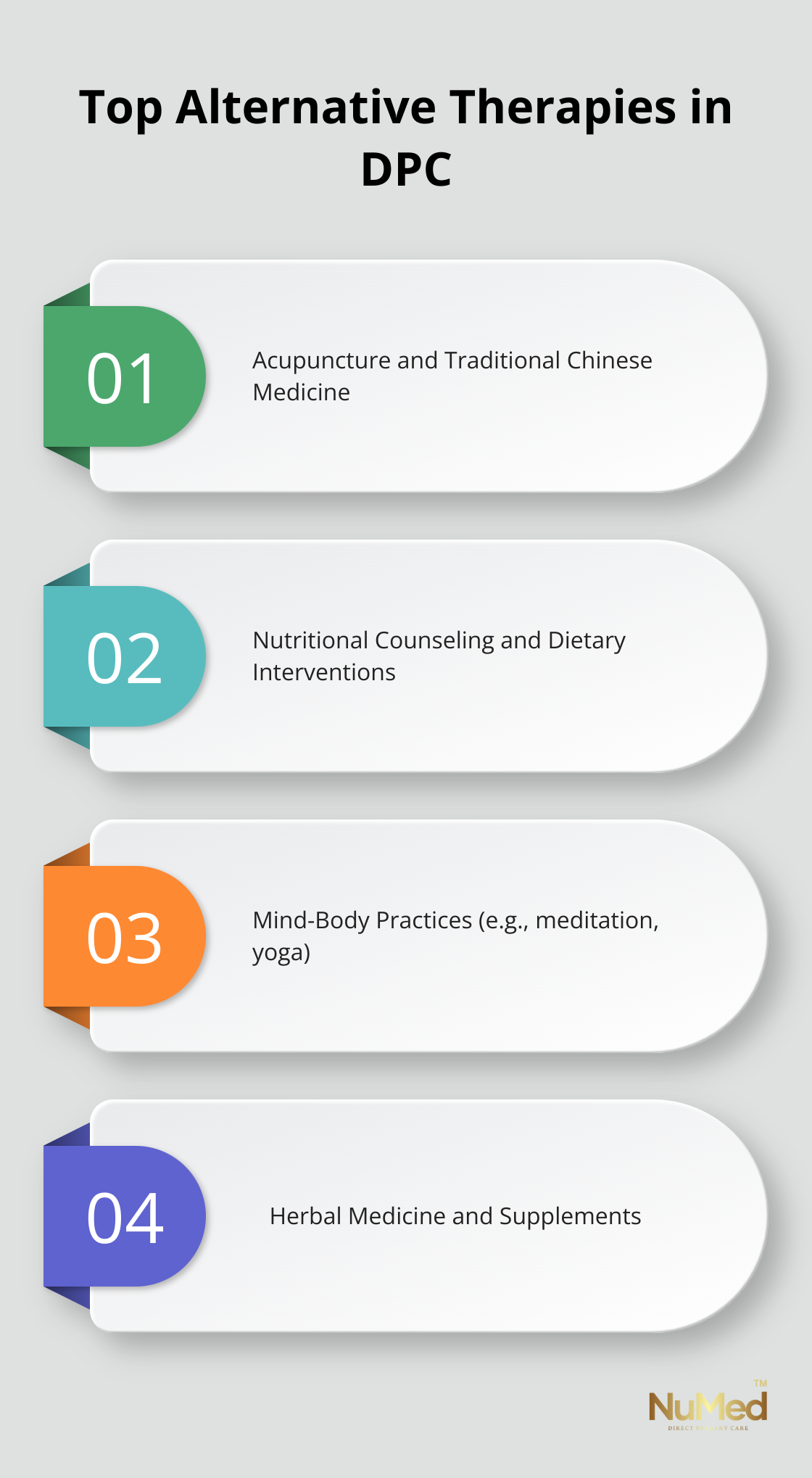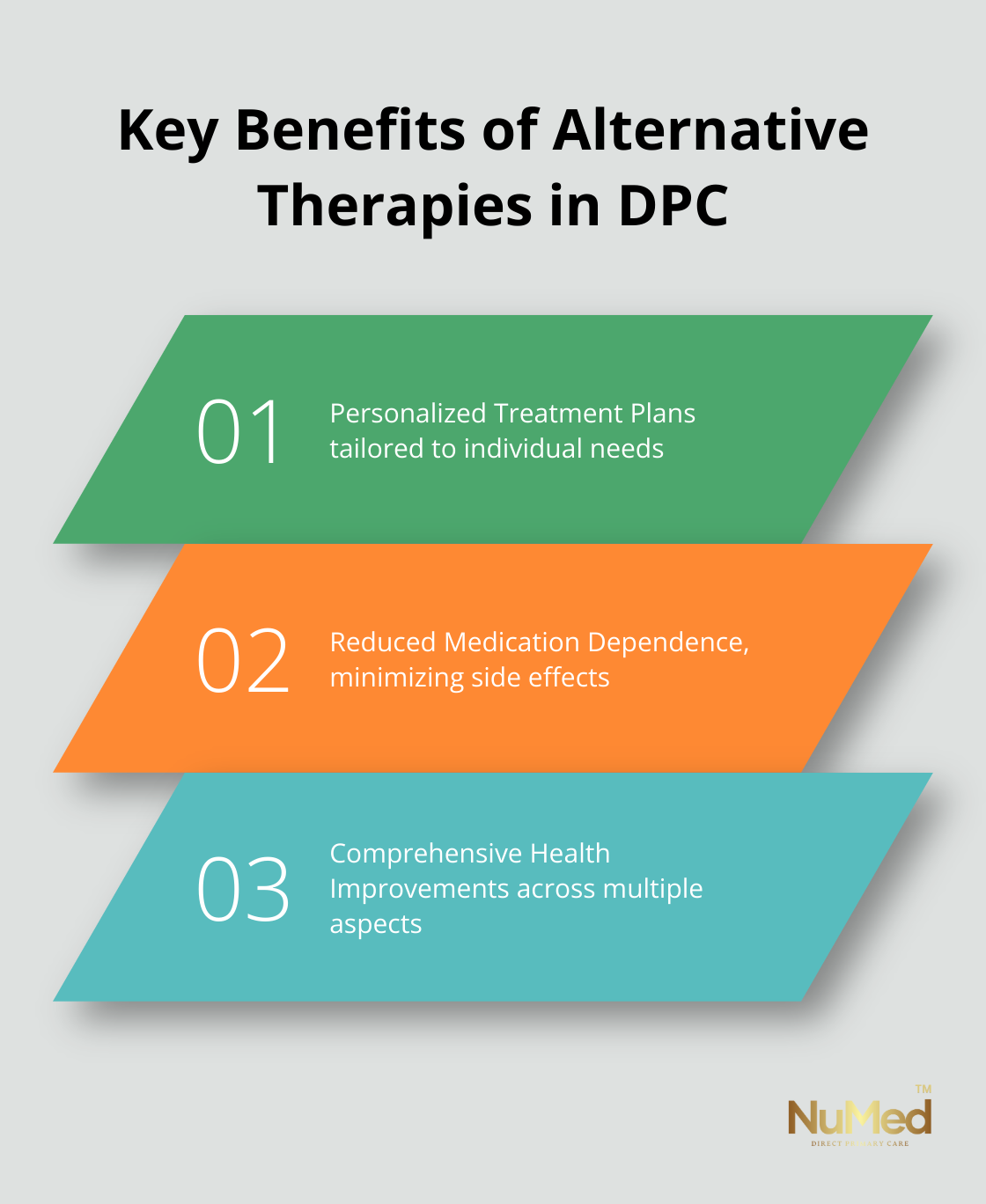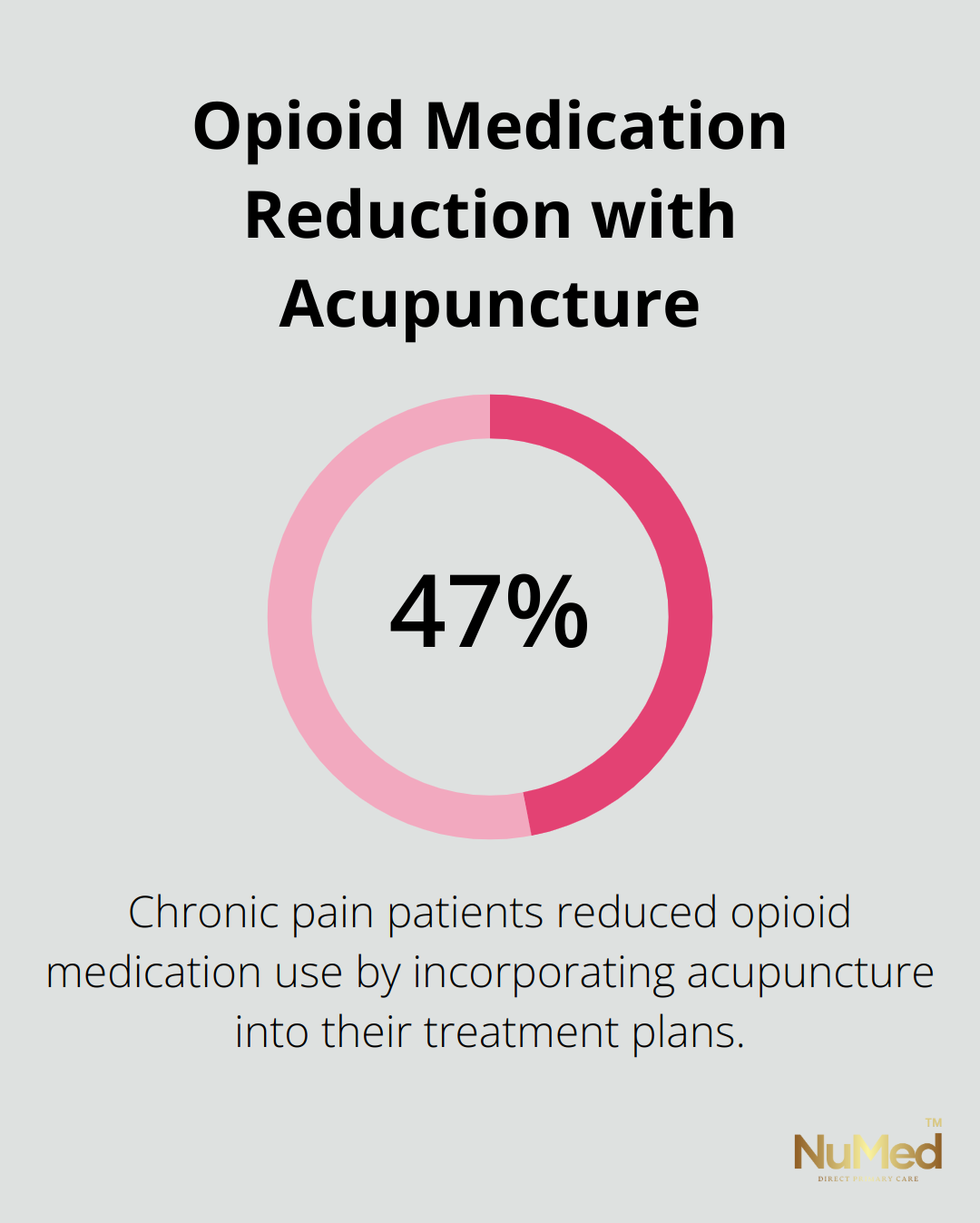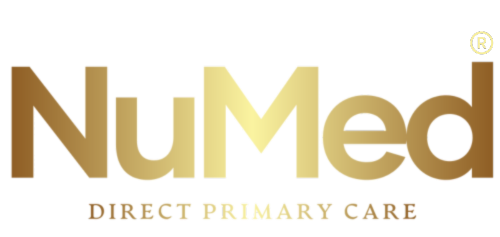The landscape of healthcare is evolving, and alternative therapies are gaining traction in Direct Primary Care (DPC) practices. At NuMed DPC, we’ve witnessed a growing interest in holistic approaches that complement traditional medicine.
This shift reflects patients’ desire for more personalized, comprehensive care that addresses the root causes of their health concerns. In this post, we’ll explore how alternative therapies are reshaping DPC and empowering patients with diverse treatment options.
Why Alternative Therapies Thrive in DPC
Patient-Driven Demand for Holistic Care
Direct Primary Care (DPC) practices witness a significant shift in patient preferences towards more holistic healthcare approaches. Patients now seek treatments that address their health concerns comprehensively. They no longer accept quick fixes or symptom management alone. Instead, they want to understand and tackle the root causes of their health issues. This desire for a more thorough approach fuels the surge in interest for alternative therapies within DPC settings.
Limitations of Conventional Medicine
While conventional medicine excels in many areas, it sometimes falls short in addressing chronic conditions or complex health issues. This gap in conventional care opens the door for alternative therapies to complement traditional medical approaches.
Seamless Integration in DPC Practices
The DPC model uniquely positions itself to incorporate alternative therapies. Unlike traditional healthcare systems (constrained by insurance requirements and time limitations), DPC practices have the flexibility to offer a wider range of treatment options. Some DPC clinics now offer acupuncture sessions, nutritional counseling, or mind-body techniques as part of their comprehensive care packages.
Personalized Care and Preventive Focus
Alternative therapies often align well with the DPC philosophy of personalized, preventive care. They allow practitioners to tailor treatment plans to individual patient needs and preferences.
Enhanced Patient Satisfaction
The integration of alternative therapies in DPC practices often leads to increased patient satisfaction. Patients appreciate the broader range of options available to them and the opportunity to explore treatments that resonate with their personal health beliefs and preferences. This holistic approach (which considers physical, emotional, and sometimes spiritual aspects of health) can result in a more fulfilling healthcare experience for many individuals.
As we move forward, the next section will explore specific alternative therapies that have gained popularity in DPC settings, providing a closer look at how these practices enhance patient care.
What Alternative Therapies Are Popular in DPC?
Direct Primary Care (DPC) practices have witnessed a surge in patient interest for alternative therapies that complement traditional medical approaches. These therapies offer a holistic approach to health, addressing not just symptoms but the underlying causes of health issues. Let’s explore some of the most popular alternative therapies in DPC settings.

Acupuncture and Traditional Chinese Medicine
Acupuncture, a key component of Traditional Chinese Medicine (TCM), has gained significant traction in DPC practices. This ancient technique involves the insertion of thin needles into specific points on the body to promote healing and alleviate pain. Many DPC patients find acupuncture effective for managing chronic pain, reducing stress, and improving overall well-being.
Integrating acupuncture with usual care demonstrates promise in enhancing mental health, alleviating chronic and general pain, and improving overall quality of life.
Nutritional Counseling and Dietary Interventions
Nutrition plays a crucial role in overall health, and many DPC practices now offer nutritional counseling as part of their services. This approach extends beyond simply advising patients to eat healthier. It involves the creation of personalized dietary plans based on individual health goals, genetic factors, and lifestyle considerations.
Nutritional counseling in DPC practices can now leverage genetic testing to detect factors that influence susceptibility to diseases and reactions to treatments, including dietary interventions.
Mind-Body Practices
The mind-body connection is increasingly recognized as a vital component of health. As a result, many DPC practices now incorporate mind-body techniques (such as meditation, yoga, and biofeedback) into their treatment plans.
These practices can be particularly effective for managing stress-related conditions, which are prevalent in today’s fast-paced society. A review published in JAMA Internal Medicine found that mindfulness meditation programs showed moderate evidence of improving anxiety, depression, and pain.
Herbal Medicine and Supplements
Herbal medicine and targeted supplementation are other areas where DPC practices are expanding their offerings. Unlike the one-size-fits-all approach often seen in conventional medicine, DPC practitioners can work closely with patients to develop personalized supplement regimens.
It’s important to note that not all supplements are created equal. DPC practitioners often have access to professional-grade supplements that undergo rigorous quality testing. They can also monitor patients closely for any potential interactions with medications or side effects.
While alternative therapies offer exciting possibilities, it’s important to approach them with a balanced perspective. The integration of these therapies with evidence-based conventional medicine provides the most comprehensive care possible. The goal is to empower patients with a wide range of treatment options, always prioritizing safety and efficacy.
As we explore these alternative therapies, it’s natural to wonder about their benefits and challenges in a DPC setting. Let’s examine how these approaches impact patient care and the overall healthcare experience in the next section.
How Alternative Therapies Benefit Patients in DPC

Personalized Treatment Plans
Alternative therapies in Direct Primary Care (DPC) enable the creation of highly individualized treatment plans. A patient with chronic migraines might receive a combination of acupuncture, nutritional advice, and stress-reduction techniques (tailored to their specific triggers and lifestyle). This level of customization often proves challenging in conventional healthcare settings due to time constraints and standardized protocols.
Reduced Medication Dependence
Alternative therapies play a significant role in decreasing reliance on prescription medications. Research published in the Journal of Alternative and Complementary Medicine revealed that patients who incorporated acupuncture into their treatment plans for chronic pain reduced their opioid medication use by 47%. This reduction minimizes potential side effects and addresses concerns about long-term medication use and addiction.

Comprehensive Health Improvements
The integration of alternative therapies often results in improvements across multiple health aspects. For instance, a patient seeking treatment for hypertension might experience not only improved blood pressure but also better sleep, lower stress levels, and increased energy (through a combination of dietary changes, meditation practices, and herbal supplements). This holistic approach addresses various health facets simultaneously, potentially preventing future health issues.
Regulatory Considerations
The integration of alternative therapies in DPC faces complex regulatory considerations, particularly for therapies not widely recognized by traditional medical boards. Practitioners must navigate these challenges to ensure compliance while offering diverse treatment options.
Evidence-Based Practices
Ensuring all practices are evidence-based requires ongoing research and education. DPC practitioners must stay informed about the latest studies and findings in alternative therapies to provide the most effective and safe treatments for their patients.
Final Thoughts
The integration of alternative therapies in Direct Primary Care (DPC) marks a significant shift in healthcare delivery. These therapies offer personalized, holistic approaches that complement conventional medicine, addressing patients’ diverse needs and preferences. The future of DPC lies in balancing traditional medical practices with alternative therapies, creating a comprehensive healthcare model that prioritizes patients.
NuMed DPC recognizes the value of this integrated approach. Our commitment to holistic healthcare encompasses a wide range of services, including functional medicine and health coaching, tailored to each patient’s unique requirements. We empower our patients to take an active role in their health journey through the combination of alternative therapies and conventional treatments.
The growing acceptance of alternative therapies in DPC settings reflects a broader trend towards patient-centered care. As more individuals seek comprehensive, preventative healthcare solutions, DPC practices that incorporate these diverse treatment options will meet this demand. NuMed DPC remains committed to providing comprehensive, patient-centered care that embraces the best of both conventional and alternative medicine.
















